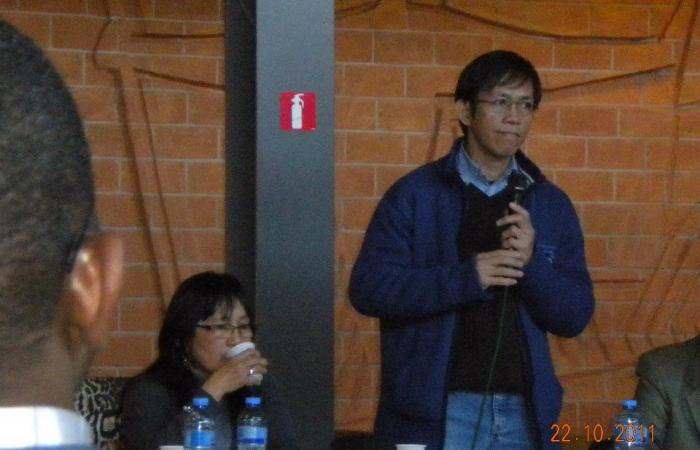On 2 January 2012, I spoke at a forum on human rights. Thankfully, I managed to reach the meeting location despite the large amounts of snow in the streets of Den Haag. The event was held by the Yes We Care Aid Foundation, specifically for people who are undocumented and unaware of their basic rights. As a part of my speech, I urged the audience to support the ongoing signature-campaign, which was organized by the Domestic Workers Association in the Netherlands (DWAN), for the ratification of the International Labour Organization’s Convention 189 – Decent Work for Domestic Workers.
After the forum, I met Sister Juliet who is a Filipina and a well-respected church leader in the community in Den Haag. In the course of our casual conversation, she expressed her immense interest in our proposal to do a campaign in her church. She told me, “Maganda yung sinabi mo”, which translates to “What you said was great”. She even agreed to meet again with other leaders of DWAN to discuss the details of our campaign.
Her words of support strengthened my profound belief that church leaders in the Netherlands are actually not adverse to the issue of rights of the undocumented. In fact, I have had some visits in churches before in connection with our campaign, and I came to learn that religious leaders were the easiest people to approach. I remember last year, on 22 October 2011, when I gave a speech about our organization at the Samen Kerk in Nederland (SKIN) conference at Haye Exoduskerk which is an event that is attended by members of protestant churches from all over the Netherlands. Our call for support for undocumented domestic workers’ rights received an enormous and warm applause from the audience. It was really a delightful experience to receive such a kind reception.
Many people look to the church as a purveyor of morality and believe that it plays an important role in articulating various political and social issues that have moral dimension such as, human rights violations, discrimination, corruption and social inequality. This has proved to be undoubtedly true in the Netherlands. No other institution besides the church has been more committed and firm in addressing the issue of rights for domestic workers, particularly those who are in an irregular status.
Truly, the support of the church has engendered hope among hundreds of thousands of migrant domestic workers who have worked so hard for a better future in the Netherlands. Now our struggle has begun to see a light, because we found our best allies to pursue our ultimate dream: respect for our rights as undocumented.
Jack Cervantes is the president of FILMIS (Filipino Migrants In Solidarity) and a member of AHRU (Alliance on Human Rights for Undocumented). He is also an active member of the Domestic Workers Union (FNV Bondgenonten) in the Netherlands . In addition, he is a PICUM member.


Comments
RSS